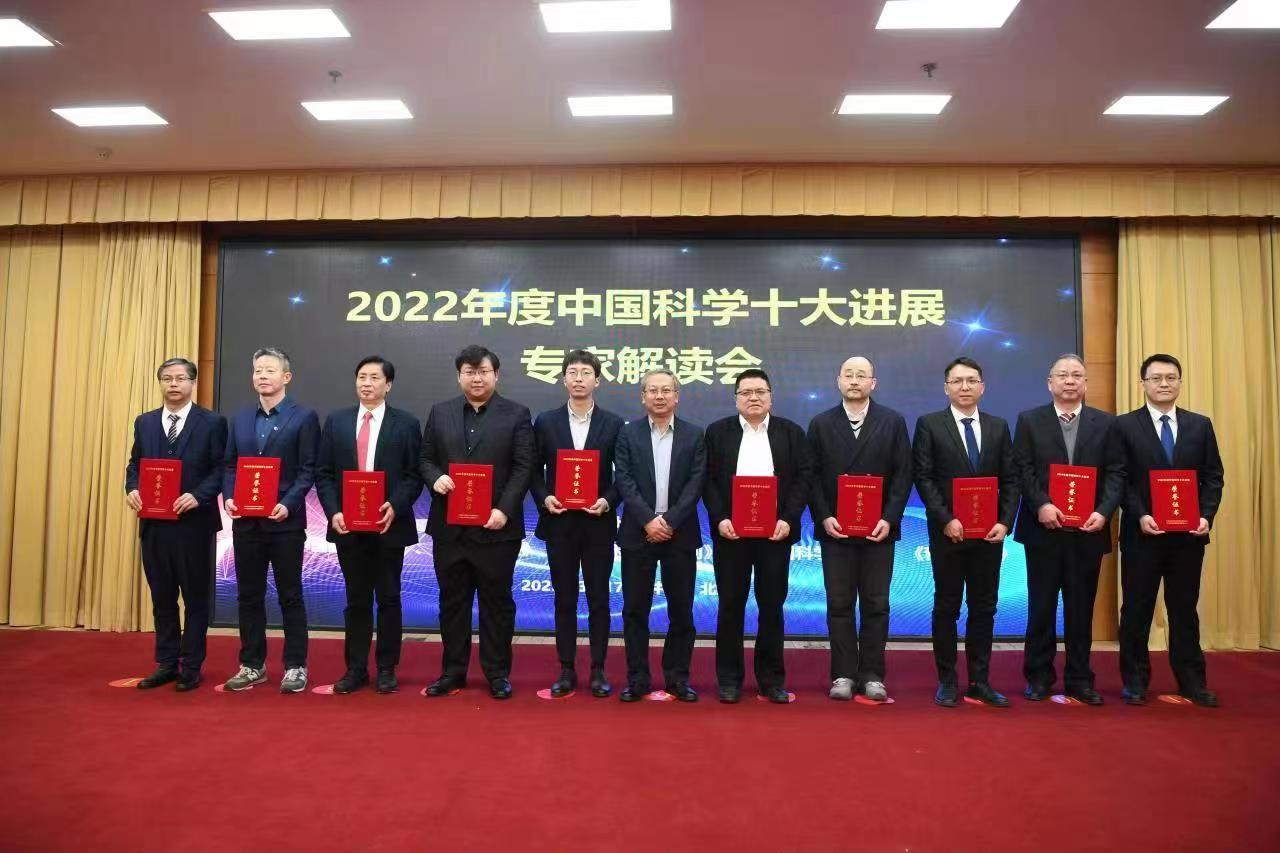"New Principles for Direct Electrolysis of Seawater to Produce Hydrogen" Selected into China's 2022 Top 10 Scientific Advances
From:
Zhonglin International Group Date:03-27 1172 Belong to:Industry Related

On March 17th, the 2022 Top 10 Scientific Advances in China, sponsored by the High tech Research and Development Center of the Ministry of Science and Technology (Basic Research Management Center of the Ministry of Science and Technology), were announced in Beijing. The research achievement of Academician Xie Heping's team from Shenzhen University/Sichuan University, "New Principles for Direct Electrolysis of Seawater to Produce Hydrogen," has been successfully selected. Director Zhang Honggang and Deputy Director Bian Shuguang of the High tech Research and Development Center of the Ministry of Science and Technology, relevant leaders of the Department of Basic Research of the Ministry of Science and Technology, the Planning and Policy Bureau of the National Natural Science Foundation of China, the Frontier Education Bureau of the Chinese Academy of Sciences and other departments, as well as interpretation experts hired by the Ministry of Science and Technology, attended the release ceremony. Director Zhang Honggang issued certificates to representatives of progress completers.
At the release ceremony, Researcher Zhang Jianling, an interpretation expert hired by the Ministry of Science and Technology, highly praised the new principle and technology of seawater in-situ direct electrolysis hydrogen production created by Academician Xie Heping's team, which completely avoids the high dependence of electrolysis water hydrogen production on pure water. It will form a zero hydrocarbon energy development path from original principles, disruptive technologies, domestic equipment to characteristic electrolysis hydrogen production industry models, and is expected to accelerate the formation of a multi energy complementary Chinese original "The global emerging strategic industry of 'ocean green hydrogen' is ushering in a new era of hydrogen production that does not require pure water!"
The team led by Academician Xie Heping has overcome a major challenge that has long plagued the field of seawater hydrogen production for nearly half a century, and has pioneered a new principle and technology for in-situ direct electrolysis of seawater for hydrogen production, achieving significant original breakthroughs. This study subverts the traditional hydrogen production model that requires pure water for electrolysis of water, establishes a mechanical mechanism driven theoretical model for direct electrolysis of seawater for hydrogen production, and pioneered a dynamic self regulating stable electrolysis hydrogen production method that synergizes electrochemical reactions with seawater migration. It achieves efficient direct electrolysis of seawater without desalination process, side reactions, additional energy consumption, and high efficiency. The research findings were published in Nature on November 30, 2022.
It is reported that Academician Xie Heping's team and Dongfang Electric Group will jointly build the world's first offshore wind power desalination seawater in-situ direct electrolysis hydrogen production platform, which will soon undergo offshore pilot testing in Fujian. It is expected to promote the rapid industrial landing of this technology, build the industrialization of seawater hydrogen production, and set a benchmark in the field of offshore renewable energy direct hydrogen production!
The selection event for the "Top Ten Scientific Advances in China" was led and organized by the High tech Research and Development Center of the Ministry of Science and Technology (Basic Research Management Center of the Ministry of Science and Technology). It has been successfully held for 18 sessions, aiming to promote the scientific progress of major basic research in China, inspire the scientific enthusiasm and dedication of science and technology workers, promote the popularization of basic research science, and promote public understanding, care, and support for basic research, Create a positive scientific atmosphere throughout society.



